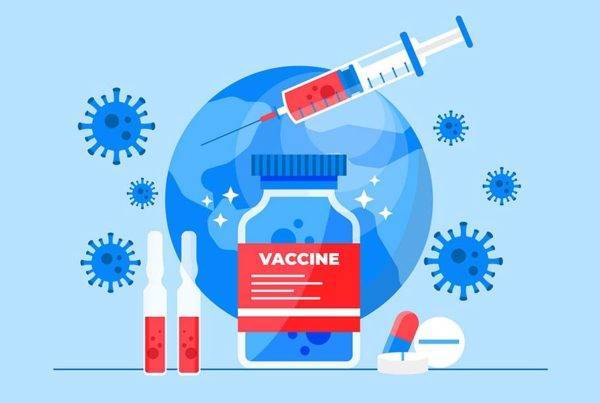India’s healthcare sector has grown drastically in the last decade but still lacks the capacity to deal with our burgeoning population. With just 1 doctor for every 1,700 patients, the length of medical consultations has shrunk to just 2 minutes on average. Such short consultations are inadequate for a thorough investigation of patients’ symptoms, medical history, and diagnostic tests. Unsurprisingly, a greater number of people are turning to online health care for various needs, from data tracking and lab tests to self-care tools and interpretation of test results. These developments can help reduce the burden on an already stretched healthcare infrastructure, as it reduces dependence on in-hospital services.
How Digital Media Is Transforming Health Care
From being nothing more than a source of information and a means to communicate, digital technology has grown to take on a greater role in both the marketing and provision of health care services. This is evident enough from the success of innovative digital health technology services like online doctor-patient directories, virtual consultations, health apps, collaborative medical records, and so on. It is also evidenced by the fact that surveys record that 77% of all patients use search engines before booking health appointments which means that most individuals look for additional information regarding their health before they visit a medical specialist.
According to some estimates, by the end of this year, around 65% of patient interactions with health care services will occur via mobile devices. This is not surprising, as surveys suggest that 90% of young adults rely on health information shared on social media and other digital health platforms, while more than 70% of doctors also use medical apps on a regular basis.
The success of digital media in the health sector can be attributed to the increased freedom and easier access provided by the platform. Patients are no longer restricted to seeking medical services in their immediate geographic location, and both medical professionals and consumers benefit with saved time and money.
With so much innovation in the digital health space, digital marketing cannot lag behind. It is now the most important way to increase outreach and visibility, to stay connected with consumers, and retain relationships. There is an increased need for integration and more intuitive healthcare marketing strategies.
Increased Opportunity for Health Care Service Providers
As more consumers turn to the digital medium for healthcare information and services, early adopters stand to make the greatest gains. This consumer shift towards online mediums is being fueled by deeper digital penetration and the proliferation of cheaper smartphones in smaller regional markets too. According to a Google-KPMG study that analyzed these trends, the number of internet users in India should touch 735 million by 2021.
This presents a unique opportunity for healthcare service providers, as an increased number of Indians are searching for health information, as well as information on health services online. In fact, data shows that 1 in 20 Google searches from India is related to health. Findings from Pew Research also suggest that nearly 2/3rd of all internet users look for health information online, while close to 50% also look for information on doctors, specialists, and medical services.
These figures highlight the role of a digital marketing campaign as well as outreach programs in forging relationships with patients, as this is often the first point of contact. In keeping with these trends, digital marketing budgets now exceed those for traditional mediums, with the greatest growth taking place in mobile/tablet apps, social media, and digital ads. The direct sale of healthcare products online has also grown exponentially, as a Ken Research report reveals that online sales grew from INR 771.0 million in FY’2012 to INR 5,075.9 million in FY’2015.
Digital Health Care Marketing Obstacles In India
The scope for digital marketing in the healthcare sector is huge, but there are certain barriers that need to be overcome to reap these benefits. The main impediment to digital health marketing is the delayed adoption of online marketing and outreach programs by the community. Hospitals and healthcare service providers need to invest heavily in the technology of the future and should also focus on quick adoption of emerging digital marketing platforms.
Unlike traditional mediums of marketing, digital marketing is undergoing constant innovation and change, with new practices and mediums emerging each day and frequent changes to existing algorithms and policies of search engines and social media platforms. In this highly fluid environment, it becomes necessary to constantly track developments and monitor their impact on marketing, so as to adapt and respond swiftly.
Perhaps the biggest obstacle to digital healthcare marketing in India is the trust deficit in the medical industry. Frequent reports of price gouging by the pharma industry and medical practices at hospitals have hurt consumer confidence. Healthcare marketers need to focus on building reputation and credibility and should form a connection with their online audiences. This is where personalized stories and patient testimonials or reviews can strike an emotional chord. Similarly, fears about data theft and misuse of patient records must be addressed by investing heavily in measures to improve data security and patient privacy protection.
Essentials Of A Strong Health Care Digital Marketing Strategy
What most content marketers in India fail to realize is that effective content marketing extends beyond the creation of product descriptions and advertorials.
Online Reputation Management
Your website or landing page has the greatest impact on a patient’s decision to use your services or look elsewhere, as it is often the first point of contact. A website should, therefore, be user-friendly, providing easy access to vast information, allowing users to take quick action. A great example would be the Mayo Clinic’s website, which is easy to use, providing comprehensive information on services, as well as preventive care.
A large part of Mayo Clinic’s reputation among the general public can be attributed to the high quality of its web content and online presentation. User feedback and testimonials should also be given adequate attention, as this can not only help you improve your online services, but it also encourages more active engagement within your community. This offers huge benefits, as most people find comfort and confidence from reading about the success and stories of patients who have undergone similar health conditions.
Newsletters and e-mailers also remain vital in health digital marketing, as this is the best way to capture and retain audiences. The relevance and utility of information provided in this medium are of the utmost importance, making personalization and segmentation of emails based on user interests and concerns critical to any successful marketing strategy.
Search Engine Optimization (SEO)
It’s easy to overlook the importance of SEO and search engine traffic with the rise of social media, but 1% of all Google searches pertain to medical symptoms – that’s 35 million searches each day! Without search engine optimization, an intuitive site with great content could still be lost. Your SEO strategy can help improve the quality and quantity of organic traffic, but avoid over optimization or keyword stuffing, as such practices can do more harm than good.
Search Engine Marketing (SEM)
Whether your healthcare practice already has a responsive website or is simply being updated, a good SEM campaign will help increase the visibility of your business. This is achieved through the use of paid search ads, context-based advertising, and organic placement, which needs to be supported by strong analytics to get the best ROI.
Social Media Marketing
When used wisely, a social media marketing strategy can serve as the best promotional tool for forging relationships with your audience. However, it is important to focus on providing practical information and sharing experiences, rather than focusing social media marketing initiatives solely on products or services. According to research from MDDI, 60% of consumers trust social media posts made by doctors, while just half as many trusts those made directly by pharma companies. Furthermore, 40% of consumers say that the information they receive through various social media platforms affects the way in which they deal with their health – this is especially true for people in the age group of 18-24 as 90% of surveyed respondents said that they trust the medical information on their social networks.
The Indian healthcare market has an estimated worth of over 100 billion USD. The compound annual growth rate for this industry has increased to 23% due to the widespread adoption of digital techniques. India healthcare is ranked as one of the fastest growing markets in the world due to a more economically stable population and a growing middle class. These factors along with an increasing consumer base and the adoption of digital innovation present an opportunity for greater digital integration in the healthcare sector. A strong healthcare digital marketing strategy is essential to expand your reach, improve your digital brand marketing, engage consumers and enhance your position in the industry.




